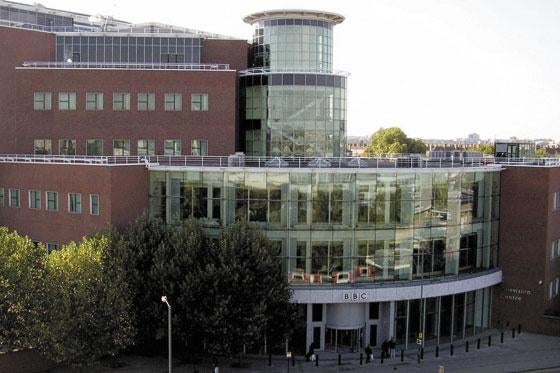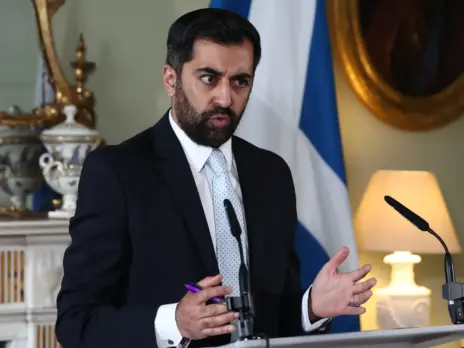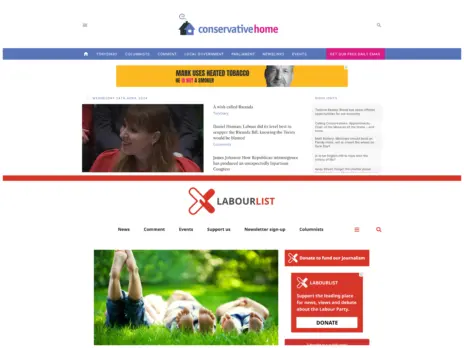
Thousands of BBC workers are to stage two 48-hour strikes in a row over pensions that threatens the corporation’s coverage of the Conservative Party conference and the Government’s comprehensive spending review, it was announced last night.
Journalists, technicians and other broadcast staff will walk out on October 5 and 6, when the Conservative conference will be held, and again on October 19 and 20, the date of the spending review.
The action was announced by Bectu, the National Union of Journalists and Unite even though the BBC offered a new concession in an attempt to avert strikes.
Unions will consult with their members over the next few weeks before meeting on 1 October to decide whether to press ahead with the strikes.
Gerry Morrissey, Bectu’s general secretary, said: “Whilst the BBC has heard and responded to some of our concerns, we are disappointed that the BBC’s response fails to take account of the long-term implications of the worsening of pension terms for staff and their families.
“We believe that the BBC should be prepared to justify its position fully by agreeing to revisit pension benefits in April 2011, should official figures confirm that the total scheme deficit is less than £1.5 billion. That said, the latest proposals from the BBC warrant further detailed examination with members.”
Jeremy Dear, NUJ general secretary said: “The BBC’s continued insistence that staff pay much more for significantly worse benefits is unacceptable. We will be taking the union’s case for fair pensions to a series of members’ meetings across the UK.
“If the BBC fails to listen to the continued anger of staff at these unacceptable pensions changes, we will be left with no choice but to strike to stop the pensions robbery.
“Our strong and determined stand against the BBC’s pensions robbery has resulted in today’s proposals. We continue to believe they are unacceptable and unfair.
“We will consult with members; give the BBC the chance to address our ongoing concerns. If they fail to do so, they will face strike action.”
Peter Skyte, Unite national official said: “While the new proposals retain a defined benefit pension for current employees, protect members’ accrued pension entitlements and go some considerable way to continue the link between basic pay and pension increases, they fall short in some areas and require clarification in others.
“The BBC has a world-class workforce which deserves world-class pensions to provide for surety and security in retirement.
“We feel it necessary to consult further with our members on the BBC’s latest proposals before determining a response and further action.”
The broadcaster has offered to set up a new career average scheme for workers who belong to its defined benefit pension, who are concerned that the planned changes will reduce the value of their retirement income.
The BBC announced plans to overhaul its defined benefit schemes in June after discovering the deficit had ballooned from £470 million in 2008 to about £2 billion.
It gave existing members of the scheme the choice of either staying in it but having any salary increases used in pension calculations capped at one per cent a year, or leaving the scheme and joining a new defined contribution one.
But members of the National Union of Journalists and the technicians’ union Bectu voted to strike by more than 9-1 in protest at the “punitive” changes the group planned to make to the scheme.
The BBC said today that it had listened to members who expressed serious concerns about the one per cap on pensionable pay rises, and it was offering to set up a new career average pension for them.
The benefits paid out by the new scheme would be lower than those paid out by a final salary one, as workers’ pensions would be based on their average earnings while they were a member of it, rather than their pay immediately before they retire.
But there will be no cap on the level of people’s pay that will be used in the calculations, meaning any pay rises or promotions would be reflected in their pension.
Members would accrue benefits at the rate of one-sixtieth of their salary each year, the same as under the current system, while pensions in payment would rise each year in line with the lower of consumer price inflation or 2.5 per cent.
The BBC closed its final salary pension scheme to new members in 2006, when it introduced a career average scheme. The schemes have around 23,000 members, of whom 17,000 are still contributing.
Workers who opt for the new career average scheme, which will be known as CAB 2011, will be asked to contribute seven per cent of their pay – considerably higher than the four per cent members of the current career average scheme pay, but lower than the 7.5 per cent paid by members of the final salary scheme.
In an email to members, Mark Thompson, director-general of the BBC, said: “Pension reform at the BBC is inevitable.
“We have a large current deficit in our scheme and face long-term pressures which, without action now, would undermine the scheme and compromise the broader finances of the BBC.”
He added that while CAB 2011 was not a “panacea”, it did go a “significant way” to addressing the concerns expressed during the consultation.
The consultation on the changes to the scheme had been due to finish at the end of this month, but the BBC has now extended it until the middle of November.
A BBC spokesman said: “We are disappointed that the unions have announced dates for industrial action.
‘We are surprised that they have done so when we have just announced today a new 60-day consultation period on a significant addition to our pension proposals.
“We believe our pension proposals address concerns raised by staff and that they should now have the opportunity to fully consider and explore them within the context of an ongoing consultation rather than the threat of a strike.”
Email pged@pressgazette.co.uk to point out mistakes, provide story tips or send in a letter for publication on our "Letters Page" blog






